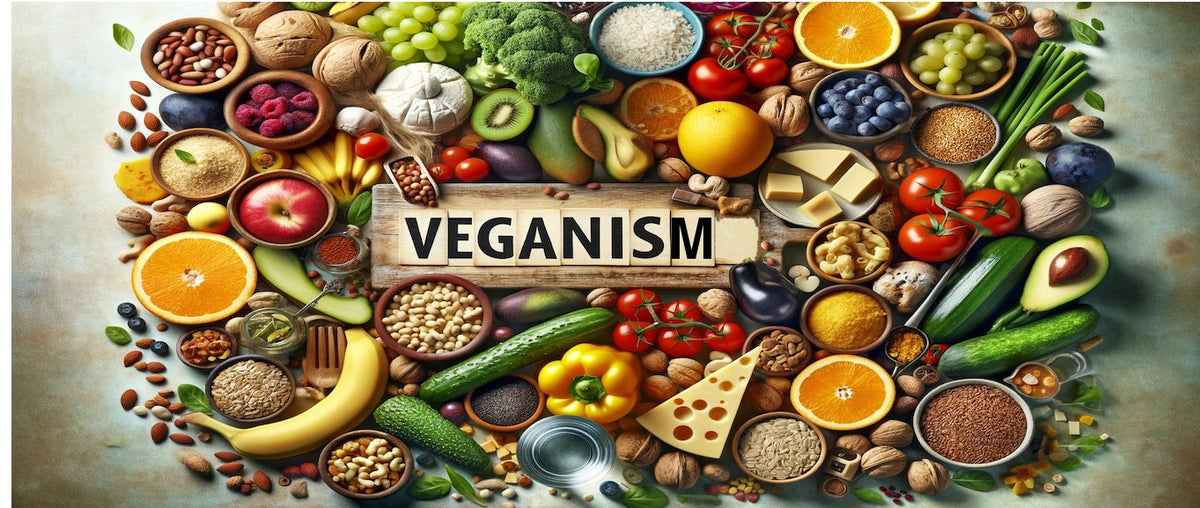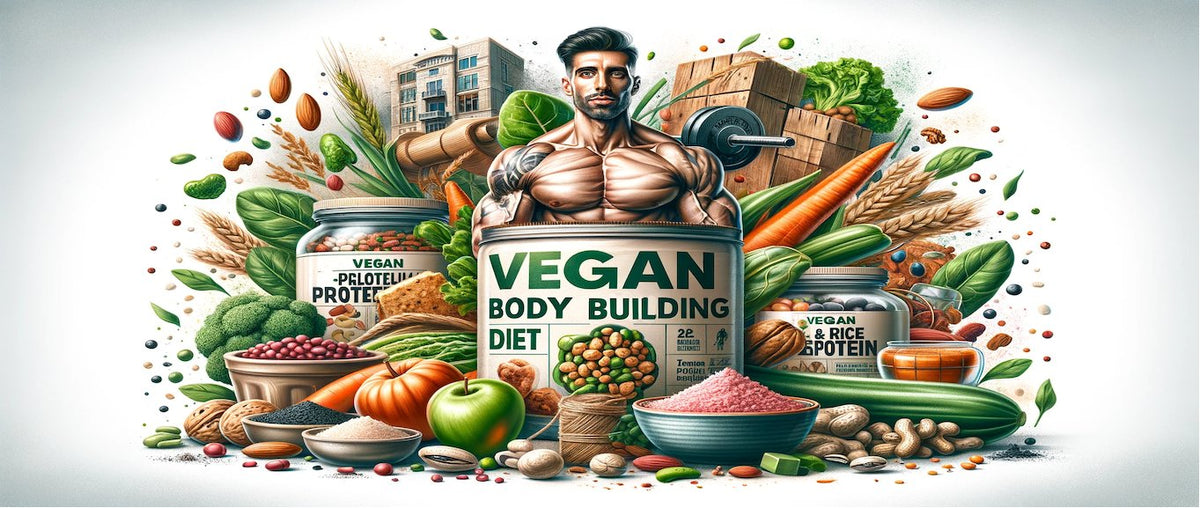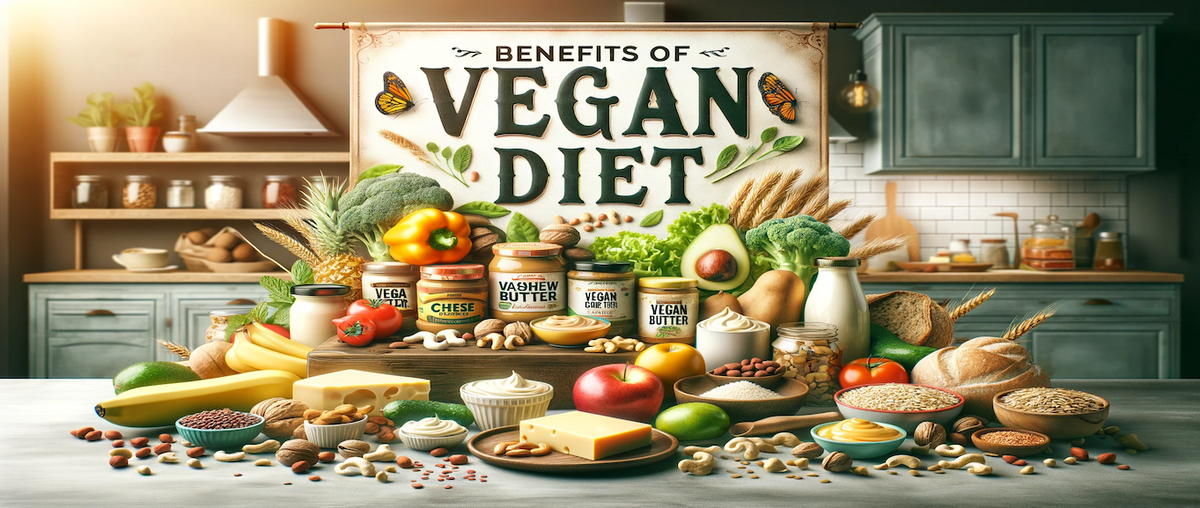Exploring Veganism: Ethical and Dietary Choices
A vegan is an individual who adopts a lifestyle (often known as veganism) centered around the philosophy of minimizing harm to animals. A vegan is someone who does not consume meat, dairy products, eggs, honey, or any product derived from animals. Their diet is rich and varied, consisting of vegetables, grains, nuts, legumes, seeds, and fruits.
Beyond their dietary choices, Veganism extend their principles to lifestyle choices as well, avoiding the use of leather, fur, silk, or wool. This commitment reflects a deep respect for animal life and a conscious effort to minimize harm to animals in all aspects of living.
What is Veganism?
Definition and History
Veganism is a philosophy and lifestyle that aims to exclude, as far as possible and practicable, all forms of exploitation and cruelty to animals for food, clothing, or any other purpose.
The roots of veganism trace back to 1944, with the formation of The Vegan Society. Donald Watson and other founding members initially focused on diet, but by 1949, Leslie J Cross expanded the definition, emphasizing the emancipation of animals from exploitation by man.
Types of Veganism
The Vegan community is diverse, with various sub-groups practicing different forms of veganism:
- Dietary Vegans: Focus primarily on the dietary aspects, avoiding animal-derived foods.
- Whole-Food Vegans: Prefer a diet rich in whole foods like fruits, vegetables, nuts, seeds, and grains.
- “Junk-Food” Vegans: Consume processed vegan food products like vegan meats and vegan cheese, snacks, and desserts.
- Raw-Food Vegans: Eat only foods that are raw or cooked at temperatures below 118°F.
- Low Fat Raw-Food Vegans: Also known as 'fruitarians,' this group primarily eats raw fruits, vegetables, and small amounts of nuts and seeds.
- Environmental Vegans: Choose veganism for its benefits to the environment, such as reducing their carbon footprint and conserving water.
- Ethical Vegans: Adopt a vegan lifestyle out of concern for animal welfare, avoiding all products and activities that exploit or harm animals.

Vegan vs. Vegetarian
Aspect |
Vegan Diet |
Vegetarian Diet |
|---|---|---|
| Definition | Avoids all animal products including meat, dairy, eggs, and often honey | Generally avoids meat but may include dairy products, eggs, and honey |
| Dietary Focus | Plant-based foods only (fruits, vegetables, grains, nuts, seeds) | Primarily plant-based but may include dairy, eggs, and honey |
| Nutritional Considerations | May need to supplement Vitamin B12, Vitamin D, Omega-3, Iron, Calcium | Usually obtains sufficient Vitamin B12 and Calcium from dairy and eggs |
| Ethical Stance | Avoids all forms of animal exploitation and cruelty | May focus on reducing meat consumption but not necessarily opposed to using animal products |
| Common Sub-Types | Whole-food, Raw-food, Low-fat raw-food, “Junk-food” vegans | Lacto-vegetarians (include dairy), Ovo-vegetarians (include eggs), Lacto-ovo vegetarians (include both dairy and eggs) |
| Environmental Impact | Generally lower due to exclusion of all animal products | Lower than omnivorous diets but higher than vegan due to inclusion of dairy and eggs |
What Do Vegans Eat?
Vegans enjoy a diverse and colorful diet centered around plant-based foods. This includes:
- Fruits and Vegetables: A fundamental aspect of the vegan diet, offering vital vitamins, minerals, and fiber.
- Grains: Examples include rice, quinoa, barley, and whole wheat products, serving as essential staples for energy and nutrients.
- Legumes: Beans, lentils, and chickpeas offer a rich source of protein and fiber.
- Nuts and Seeds: Almonds, flaxseeds, and chia seeds, for instance, are excellent sources of omega-3 fatty acids and proteins.
- Plant Based Foods and Dairy Alternatives: Almond milk, soy yogurt, and cashew cheese are popular among vegans.
- Tofu and Tempeh: Soy-based products that are versatile and protein-rich.
- Nutritional Yeast: Adds a cheesy flavor to dishes and is a source of Vitamin B12.
- Healthy Fats: Avocados, olive oil, and coconut oil are key for balanced nutrition.

Vegan Food Products
Vegans avoid all animal products and by-products. This includes:
- Meat and Poultry: From all animals, including fish and seafood.
- Dairy Products: Such as milk, cheese, butter, and yogurt.
- Eggs: From chickens or any other birds.
- Honey: As it is produced by bees.
- Gelatine: Derived from animal collagen.
- Certain Additives: Like lanolin (in Vitamin D3), casein, and some forms of lecithin.
Nutrition for Vegans
Ensuring a balanced and nutrient-rich diet is crucial in veganism. Key nutritional considerations include:
- Protein: Essential for building and repairing muscle and cell. Sources include legumes, tofu, seitan, and edamame.
- Vitamin B12: Necessary for nerve function and blood health. Often supplemented or found in fortified foods.
- Iron: Vital for oxygen transportation in the blood. Found in lentils, chickpeas, and fortified cereals.
- Calcium: Important for bones and teeth. Sources include fortified plant milks, tofu, and leafy greens.
- Omega-3 Fatty Acids: Important for heart health. Sources include flaxseeds, chia seeds, and hemp seeds.
- Vitamin D: Essential for bone health and immune function. Can be supplemented or obtained through sun exposure.
Also Read
Health Benefits and Nutritional Considerations
Essential Nutrients in a Vegan Diet
A thoughtfully organized Vegan Diet within veganism can be nutritionally complete and offer various health advantages. However, it requires careful consideration to ensure all essential nutrients are included:
- Vitamin B12: Crucial for nerve function and blood formation, this vitamin is found in fortified foods and supplements as plant-based sources are scarce.
- Iron: Essential for the production of healthy red blood cells, vegans can acquire iron from plant sources like legumes, tofu, and fortified cereals. Pairing these with vitamin C-rich foods can enhance absorption.
- Calcium: Vital for bone health, vegans can obtain calcium from fortified plant-based milks, tofu made with calcium sulfate, and leafy greens such as kale and broccoli.
- Vitamin D: Necessary for bone health and immune function, this nutrient can be synthesized through exposure to sunlight and is also found in fortified foods and supplements.
- Omega-3 Fatty Acids: Important for heart health, vegan sources include flaxseeds, chia seeds, hemp seeds, and algae-based supplements.
- Protein: Easily obtained from a variety of plant sources like beans, lentils, tofu, tempeh, and whole grains.

Health Benefits of a Vegan Diet
Adopting veganism comes with significant health benefits:
- Heart Health: A vegan diet rich in fruits, vegetables, nuts, seeds, and whole grains can reduce the risk of heart disease.
- Weight Management: Plant-based diets are typically lower in calories and fat, helping in weight management and obesity prevention.
- Diabetes Prevention and Control: Vegan diets can improve blood sugar control and may reduce the risk of developing type 2 diabetes.
- Cancer Risk Reduction: Certain plant-based foods are linked to a lower risk of cancer, thanks to their high fiber and antioxidant content.
Ethical and Environmental Aspects
Veganism extends far beyond dietary choices, encompassing a broader ethical stance against animal exploitation:
- Clothing and Accessories: Vegans avoid leather, wool, silk, and fur, opting for cruelty-free and sustainable materials.
- Cosmetics and Household Products: Preference for items not tested on animals and free from animal-derived ingredients.
- Entertainment: Avoiding activities that exploit animals, such as circuses, zoos, and races.
Veganism and the Environment
Veganism significantly impacts environmental conservation:
- Reduced Carbon Footprint: Plant-based diets have a lower greenhouse gas emission compared to diets including meat and dairy.
- Conservation of Water: Vegan diets require less water, as animal agriculture is water-intensive.
- Land Use Efficiency: plant based foods generally require less land than animal agriculture, aiding in biodiversity preservation.
Challenges and Misconceptions
Addressing Common Misconceptions
There are several misconceptions surrounding veganism:
- Protein Deficiency: A common myth is that vegans struggle to get enough protein. However, many plant-based foods are rich in protein.
- Expensive Lifestyle: While some specialty Vegan products can be costly, a vegan diet based on whole foods can be quite economical.
- Limited Food Choices: Veganism provides a wide array of food options, debunking the myth of limited choices.
Overcoming Challenges
Adopting veganism might pose challenges, but it's manageable with the right approach:
- Gradual Transition: Initiating the process with small changes and gradually phasing out animal products can facilitate a smoother transition.
- Learning to Cook Vegan Meals: Exploring vegan recipes and cooking methods can make the diet more enjoyable and varied.
- Community Support: Joining vegan communities, online or offline, can offer support, advice, and camaraderie.
How to Go Vegan
For those considering veganism, here's a step-by-step guide:
- Educate Yourself: This is your first step where you learn more about veganism. Learn about vegan nutrition and ethical reasons for veganism.
- Start Slow: The next step for you is to start integrating veganism into your lifestyle by incorporating plant-based meals into your diet.
- Find Alternatives: While doing your research about veganism, explore vegan alternatives for your favorite non-vegan foods.
- Read Labels: Get into the habit of checking labels for animal-derived ingredients.
- Experiment with Recipes: Try new vegan recipes and cooking techniques.
- Connect with Other Vegans: Gain support and tips from the vegan community about veganism.
Embracing Veganism
Adopting veganism can seem daunting, but it's a journey of discovery, learning, and personal growth. It's not just about excluding animal products from your diet; it's about embracing a way of life that advocates for animal rights, environmental sustainability, and personal health. The transition to veganism is unique for each individual and can be tailored to fit personal circumstances and preferences.
A Path to a Sustainable Future
The benefits of veganism extend beyond individual health. By choosing veganism, you're contributing to a more sustainable and compassionate world. The choices you make in your diet and lifestyle can have a profound impact on the environment, animal welfare, and even global food security.
A Journey of Continuous Learning
Veganism is a journey, not a destination, requiring ongoing learning and adaptation. New alternatives and options are constantly emerging, making it an exciting and evolving journey.
Conclusion
Veganism, a lifestyle choice rooted in ethical, environmental, and health considerations, offers a compassionate alternative to traditional diets that rely on animal products. This guide has explored various facets of veganism, from its definition and types to the dietary choices, nutritional needs, and broader ethical implications. We've debunked common misconceptions, addressed challenges, and provided a practical roadmap for those considering this lifestyle change.










